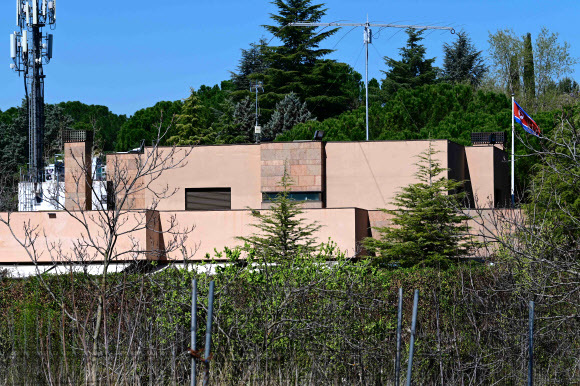 |
|
The North Korean embassy in Madrid, Spain. (AFP)
|
US connection to raid could negatively impact denuclearization talks with North Korea
The US Federal Bureau of Investigation (FBI) received information obtained by the anti-North Korea group Cheollima Civil Defense (CCD, also known as “Free Joseon”) during its Feb. 22 raid on the North Korean embassy in Spain, NBC reported. The report suggests CCD was telling the truth when it previously announced that it had “shared certain information” with the FBI when claiming responsibility for the embassy attack. The NBC report on Mar. 30 quoted a source familiar with the matter saying the FBI received the information in question. A former US intelligence official told the network that the information obtained from the embassy could prove “pretty significant” in light of the tight security surrounding the North Korean regime. NBC also suggested the physical documents provided could be highly valuable in light of North Korean embassies’ reported reliance on “non-electronic, old-fashioned communication methods.” The sharing of intelligence between CCD and US authorities could have delicate repercussions for the dialogue taking place since last year between North Korean leader Kim Jong-un and US President Donald Trump. The US government has shown a cautious stance, denying any involvement with the incident. The State Department recently insisted that the US government was not connected to the raid, while the FBI said it was “standard practice to neither confirm nor deny the existence of an investigation.” In a Mar. 31 Foreign Ministry spokesperson’s statement, North Korea called the incident a “grave terrorist attack” and said it was “following the rumors of all hues now in the air that FBI of the United States and the small fry of anti-DPRK ‘body’ [sic] were involved in the terror incident.” By Hwang Joon-bum, Washington correspondent Please direct comments or questions to [english@hani.co.kr]






